#the narrative of arthur gordon pym of nantucket
Text
Ahoy, shipmates!
Over the course of several delayed flights this weekend, I devoured a paperback copy of Edgar Allan Poe's The Narrative of Arthur Gordon Pym of Nantucket. I found it enjoyable, if not a Great Classic Work Of Literature.
My question to you now is, there's a chapter in the middle of the book where our castaway hero encounters a plague ship. It moves erratically through the water before them, with what appears to be a smiling, nodding sailor at the rail, acknowledging Arthur and his fellow castaways.
However, as the ship approaches, the stench of death washes over our hero and his companions, and as it passes under their stern, they can see that all aboard the ship are dead of some terrible, unknown disease, and that the smile and nod they perceived were the rictus of death and the movement of a seagull feasting on the dead sailor's flesh.
This is my first time reading this book, and yet there's something viscerally, intensely familiar about this imagery. I feel like I've read this somewhere else before. Perhaps it was in a graphic novel, because my mental image of this scene appears in a sort of comic-book style.
Does anyone have any ideas where I might have encountered this before? Any help would be appreciated.
@clove-pinks
@benjhawkins
@ltwilliammowett
@saranilssonbooks
#the narrative of arthur gordon pym of nantucket#arthur gordon pym#edgar allan poe#nautical fiction#nautical horror#maritime fiction#maritime horror#age of sail fiction#sea stories#plague ship#ghost ship
43 notes
·
View notes
Text
edgar allan poe: ok i’m going to write my first novel, it is a ~kooky nautical adventure~
also edgar allan poe: [ends up writing a super gory proto-lovecraftian bildungsroman about a cringe-fail frat boy with incredible healing powers]
#milestumblr#arthur gordon pym#the narrative of arthur gordon pym of nantucket#the title is SO awful but the book is really good#except the racist parts
20 notes
·
View notes
Text
my favorite part of the narrative of a Gordon pym thus far is when our illustrious hero remembers where he put an axe immediately after they finish eating the fourth member of their merry band, and then they use it to start getting all the food from the storehouse they could've eaten instead of their buddy if Arthur had remembered where he'd put that damn axe or dirk peters had asked Arthur if he remembered where he'd put that damn axe just like a week earlier
11 notes
·
View notes
Quote
Words have no power to impress the mind without the exquisite horror of their reality
Edgar Allan Poe, The Narrative of Arthur Gordon Pym of Nantucket
6 notes
·
View notes
Text
Reading The Narrative of Arthur Gordon Pym of Nantucket by Edgar Allan Poe:
1- Introduction
2- A bit claustrophobic, I suppose?
3- Well, things just got interesting
4- Now it's just sad
5- Things are getting interesting again!
6- Wow, this is a bit racist...
7- Wow, this is SUPER RACIST
8- Now things are getting so, SO much more interesting
9- NO! Master Poe, respectfully GET BACK AND WRITE!!! What do you mean it ends here? The last sentences of the actual journey and UGHH!!!
#art#literature#edgar allan poe#gothic literature#the narrative of Arthur Gordon Pym of Nantucket#Arthur Gordon Pym#adventure novel#I did not expect Poe to rival his fanboy's racism#and by fanboy I mean Lovecraft#enjoyable but nowhere near his short stories
0 notes
Note
Hi Mike! Curious to know if you have any suggestions of Poe stories we should read before Usher comes out (aside from the obvious, of course)?
Oh boy, let's see...
The Tell Tale Heart
The Raven
The Cask of Amontillado
The Murders in the Rue Morgue
The Masque of the Red Death
The Black Cat
Tamerlane
The Premature Burial
Lenore
Morella
The Narrative of Arthur Gordon Pym of Nantucket
William Wilson
The City in the Sea
The Pit and the Pendulum
Spirits of the Dead
... this series is pretty wild ;)
1K notes
·
View notes
Text
My Favourite Scene from The Fall of House of Usher:
This is one of my all-time favourite Mark Hamill performances.
So much subtle weight is conveyed about a whole, mostly untouched, history 'The Narrative of Arthur Gordon Pym of Nantucket'
I found the scene so emotional, Love You Mike for this one!

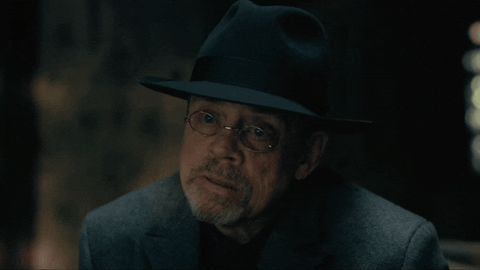
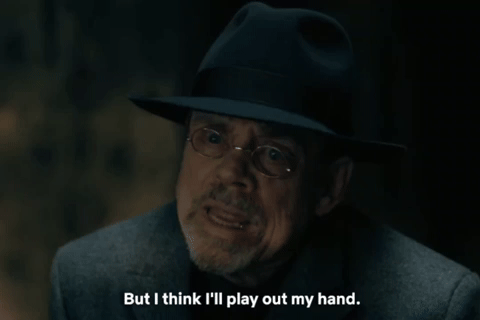
#mike flanagan#the fall of the house of usher#fall of the house of usher#the house of usher#mark hamill#mark#mike
1K notes
·
View notes
Note
❛ oh , this cover looks beautiful. ❜

“What, this?” And he held the book up a little for her to see it, though admittedly he couldn’t see the beauty in it. Maybe it was just an art thing? Maybe he knew nothing about boats? Probably the latter, considering he wasn’t sure if he was regretting or liking taking this book suggestion from a friend.
“Don’t think I can say much ‘bout the story, sadly. Pretty sure all I’ve gotten so far is that Poe really hated the bloody sea…”
Never mind that he was clearly halfway through the book. Oops.
#someone told him to read The Narrative of Arthur Gordon Pym of Nantucket and he's like meh#tardishinhumanflesh#✦✦INSANE PRATTLE -- (in character)#✦✦DO YOU BELIEVE IN MAGIC? -- (asks)
0 notes
Text
Yeah, so I haven't seen it discussed much around but Verna is almost definitely an eldritch being from the 'Narrative of Arthur Gordon Pym of Nantucket' but she's less Cthulhu and more monkey's paw/devil on the crossroads figure for awful people.
The ending of Arthur Gordon Pym has the following:
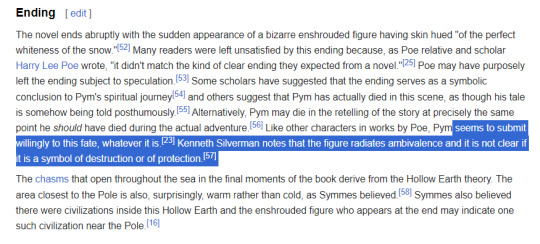
Their conversation in the final episode essentially confirms that:
He knows her
They saw each other during Arthur's expedition
she's from the above-mentioned chasm in the hollow earth
She left the chasm because she was curious about humanity
As the wiki states here, he basically 'submits willingly' in the show to her and kind of just excepts who she is. Of course, he declines to make a deal with her, and faces death/punishment quite willingly
Ultima-Thule, the race of people in the hollow earth in the show's continuity is from Poe's poem 'Dream-Land'
“I have reached these lands but newly
From an ultimate dim Thule —
From a wild weird clime that lieth, sublime
Out of SPACE — out of TIME.”
which given some of the dialogue that Verna espouses should make it pretty clear
"The Narrative of Arthur Gordon Pym of Nantucket" even uses Antarctica as a setting which Lovecraft's At The Mountains of Madness would go on to homage.
This story is fairly clear proto-Cosmic Horror
#the fall of the house of usher#netflix#horror#cosmic horror#verna#she's like an eldritch horror that's pro-union and working class she's the best is what i'm saying#spoilers
151 notes
·
View notes
Text
"Words have no power to impress the mind without the exquisite horror of their reality”
- The Narrative of Arthur Gordon Pym of Nantucket, 1838
#dark acadamia aesthetic#dark academia#light academia#light acadamia aesthetic#classic academia#quotes#romantic aesthetic#book quotes#poetry#books & libraries#soft academia#art academia#academia#academia moodboard#dark academia books#dark academia moodboard#light academia moodboard#nature academia#dark acadamia quotes#chaotic academia#edgar allen poe quote#edgar allen poe#gothic literature#gothic
44 notes
·
View notes
Text
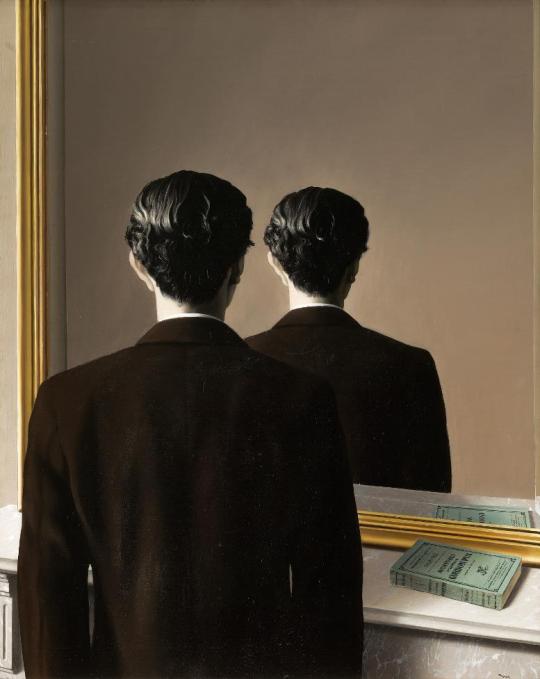
MWW Artwork of the Day (1/12/24)
René Magritte (Belgian, 1898-1967)
Not to be Reproduced (La reproduction interdite)(1938)
Oil on canvas, 81.3 x 65 cm.
Museum Boymans-van Beuningen, Rotterdam
This painting was commissioned by poet and Magritte patron Edward James and is considered a portrait of James although James' face is not depicted. This painting was one of three produced by Magritte for the ballroom of James' London home. The work depicts a man standing in front of a mirror, but whereas the book on the mantelpiece is reflected correctly, the man can see only the back of his head. The book on the mantel is a well-worn copy of Edgar Allan Poe's "The Narrative of Arthur Gordon Pym of Nantucket". Poe was one of Magritte's favorite authors and he made other references to the author and his work.
24 notes
·
View notes
Text
Winter Reading Challenge
Every season I like to give myself a challenge to read. Unfortunately, I didn't manage to finish almost any of the ones I had in the autumn challenge (I'm not a procrastinator, I swear, I just have very little free time). This time, I tried to include in the list books from several fields, from prose to poetry, philosophy, theater and theater theory, biographies. There are many Russian authors in this list, it seems to me that they fit very well with the cold season. Let's hope that this time I will stick to reading more. Wish me luck!
From December 1st - February 29th (European calendar)
Leo Tolstoy – ”Childhood. Boyhood. Youth”
Leo Tolstoy – ”War and Peace”
Fyodor Dostoevsky – ”The Double” (1846)
Fyodor Dostoevsky – ”Demons”
Ivan Turghenev – ”Rudin”
Nikolai Leskov – ”Lady Macbeth of Mtsensk and other short stories”
Anton Chekhov – ”Novellas and novelettes by Anton Chekhov”
Nikolai Gogol – ”Dead Souls”
Aleksandr Solzhenitsyn – ”One Day in the Life of Ivan Denisovich”
Mikhail Bulgakov – ”The Master and Margarita”
Maxim Gorky – ”Mother”
Vladimir Nabokov – ”Lolita”
Marguerite Yourcenar - "A Coin in Nine Hands"
Marguerite Yourcenar - "A Blue Tale"
Franz Kafka - "The Metamorphosis and other stories"
Edgar Allan Poe - "The Narrative of Arthur Gordon Pym of Nantucket"
John Edwards Williams - "Stoner"
Ovid - "Metamorphoses"
Dante Aligheri - "The Divine Comedy - Inferno"
Giovanni Papini - "Gog"
Plato - "Phaedo"
Aristotel - "Metaphysics "
Marcus Aurelius - "Meditations: Thoughts to Myself"
Immanuel Kant - "Prolegomena to Any Future Metaphysics Article Talk "
Niccolo Machiavelli - "The Prince"
Emil Cioran - "The Trouble With Being Born"
Peter Brook - "The Empty Space"
Jerzy Grotowski - "The Poor Theatre"
Antonin Artaud - "The Theatre and its Double"
Martin Esslin - "The Theatre of Absurd"
Salvador Dalí - "Diary of a Genius"
Vaslav Nijinsky - "The Diary of Vaslav Nijinsky: Unexpurgated Edition"
August Strindberg - "The Ghost Sonata"
William Shakespeare - "Titus Andronicus"
William Shakespeare - "Coriolanus"
Maxim Gorky - "The Lower Depths"
Racine - "Britannicus"
Goethe - "Gotz von Berlichingen"
Frank Wedekind - "The Spring Awakening"
Aeschylus - "The Oresteia" (Agamemnon, The Libation Bearers, The Eumenides)
#dark academia#books and reading#bookblr#book#booklr#books#reading list#winter#russian writers#biography#philosophy#reading challenge#theatre plays#theatre#poetry
34 notes
·
View notes
Text
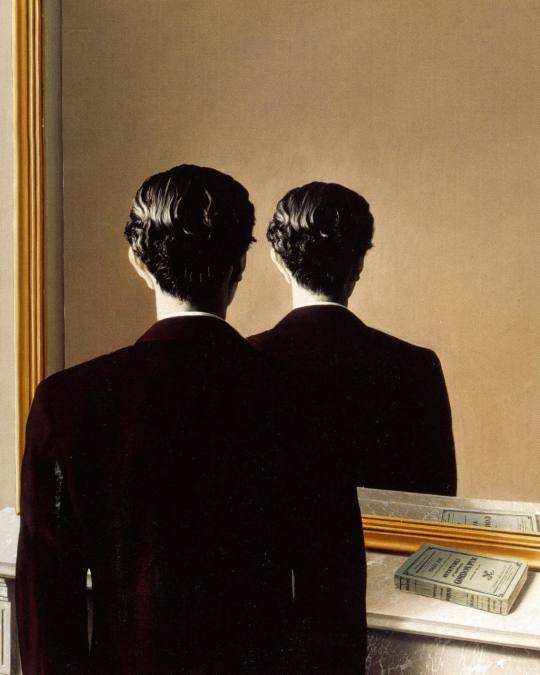
The painting "Not to Be Reproduced" (French: La reproduction interdite) by René Magritte is one of the most famous works by the Belgian surrealist artist. Created in 1937, this painting is a striking example of Magritte's interest in challenging perceptions and exploring the contradictions between reality and illusion.
In "Not to Be Reproduced," Magritte depicts a man standing in front of a mirror. However, the reflection in the mirror defies expectation: instead of showing the man's face, the reflection also shows the back of his head. This creates a disconcerting and surreal effect, as the viewer expects to see the man's face reflected in the mirror but is instead confronted with an impossibility.
The room depicted in the painting is sparse, with a bookshelf and a view of a landscape through a window, which further adds to the unsettling atmosphere. The book on the mantelpiece is identifiable as Edgar Allan Poe's "The Narrative of Arthur Gordon Pym of Nantucket," which adds a layer of literary allusion to the painting.
Magritte's work often plays with reality and illusion, questioning the reliability of perception and the nature of representation. "Not to Be Reproduced" is a prime example of this, presenting an impossible scenario that challenges the viewer's expectations and perceptions. The painting is not just a visual puzzle but also an invitation to ponder the nature of reality and our understanding of it.
12 notes
·
View notes
Text
"i won't go into detail about how we ate that guy, except to go into precise detail about how we went about eating that guy and how long it took us to finish him" --arthur pym (of nantucket)
#the narrative of arthur gordon pym of nantucket#edgar allan poe#anyway ol mr poe continues to be the funniest goddamn person who ever lived#zack's random nonsense
5 notes
·
View notes
Text

Edgar Allan Poe: The Narrative of Arthur Gordon Pym of Nantucket (1838)
25 notes
·
View notes
Text
Highway Hypnosis
Chapter 5: Heimlich
I think there’s a reason people tend to gravitate toward Edgar Allan Poe when they’re about thirteen years old. They feel seen by him, and their feeling is correct; he was a grown man with the emotional maturity of a middle schooler. The entitlement, the shallowly wounded sense of self, the absolute certainty that one day the world would pay for its slights against his pride; sure, he gets you. The man spent his entire life wishing he was somewhere he wasn’t. It’s a sentiment that gets less relatable with every choice you make–every time you exert control over something in your life, you get further and further from Poe’s ideology. Damn, though. It’s awfully tempting to backslide.
I’m technically working, though I’m really just leaning against the counter at the cafe, flipping through an anthology of Poe’s short fiction and poetry that I found between the refrigerator and the kitchen sink. I haven’t read anything of his since I was nineteen and forced to read The Narrative of Arthur Gordon Pym of Nantucket for a class I had no interest in. The novel itself made as good a case as any against Poe, flipping arbitrarily between long, drawn-out descriptions of boat mechanics and comparatively more exciting, though often wildly racist, battle sequences. The titular character was clearly a stand-in for Poe himself: a blatant masochist who hurls himself bodily into the jaws of danger for the chance to live out his fantasy of American masculinity. If the plot was even ten percent less contrived, I think Poe might have had a massive hit on his hands; as it stands though, Pym has become a veritable punching bag for bored and hypercritical undergrads. Not even the men of Evergreen, rugged and adventure-starved as they are, can be bothered to pick up a copy.
I can’t be quite as harsh on Poe’s short stories. The one I’m reading now, William Wilson, is actually scaring the shit out of me–I can never say so out loud, just in case Poe’s ghost is somewhere lurking in search of validation, but there’s just something about the whispering doppelganger that makes the hair on the back of my neck stand up. It reminds me of the summers I spent here, when Len and I used to have “Fright Nights” once a week; he’d draw the curtains and douse the lamps, lighting candles and lanterns so that the shadows of his various oddities were cast high on the walls, and he’d let me pick an episode of the X-Files to watch from his VHS box set. Of all the episodes I saw (discounting the one about the family of inbreeders who kept their mother under the bed–that one he wouldn’t let me watch until I was in college with my own Netflix account), there was one that simultaneously thrilled and terrified me in almost exactly the same way as William Wilson. The agents are in Florida for some kind of conference and get waylaid tracking down an invisible forest creature that’s evolved past humanity–tall and thin, running at unbelievable speeds on the balls of its feet, blending in with the foliage. It’s uncanny and exciting, like looking in a mirror and seeing something not quite human looking back at you. Like William Wilson.
It occurs to me briefly, as I sift absently through the pages, that I have become the type of person one might read about in these stories, or watch on a Fright Night. Isolated, alone, hapless. The perfect victim, in a lot of ways. It’s getting harder to feel sorry for myself, though, and harder still when I compare my life to Edgar Allan Poe’s. Things just happened to him, or at least that’s what he thought. I’m making choices; I’m choosing to work, and when I’m not working I’m choosing to go out and explore, or decorate my home, or sit on my front porch just because. I am making the active decision to enjoy myself, a thought that would have done us out of a lot of classic horror if it had ever crossed Poe’s mind. I am trying, so goddamned hard.
“You in there?” is the familiar question that breaks me from my reverie, and I lower the book to look up into the face of Jasper Stevens, partially obscured by his tousled hair as he tilts his head down to meet my eyes. I’m somewhere in there, thanks for asking.
“What can I get you?” I ask, straightening with a smile as he shifts his weight from foot to foot.
“Something cold,” he replies, “dealer’s choice.”
“Arnold Palmer, coming up,” I say, accepting his payment before he chooses a seat at the bar. He watches me work with the same quiet, contemplative gaze he uses on me when I visit the general store. There’s not much actual work to be done; ice, lemonade, and tea. I fold my arms on the bar and lean forward after setting the drink down, and he mirrors my posture. “So,” I say, “what’s new?”
He cocks his head to the side. “You, still.”
“I guess that’s true,” I say. It’s been two days since the last time I saw Jasper, when he crushed my soul back into my body.
Jasper takes a thoughtful sip of his drink before speaking again. “Would I be correct in assuming,” he says, “that your shift ends in approximately three minutes?”
I check my watch. He’s right, of course. “You would,” I reply, “Janie should be back any minute now.”
“Good. Come to the river with me?”
“Yeah, okay,” I say, for the first time knowing that I’m saying yes to a whole person, knowing that I’m a whole person myself.
Jasper smiles–really, I mean it–and says: “You know, I don’t think I’ve ever actually been in here before.”
#highway hypnosis#sometimes tumblr keeps my indents and sometimes she doesn’t#writers on tumblr#every time i talk in the tags i think of that old post that’s like ‘in the tags sis’ do you know the one I mean#anyway this chapter brought to you by my ex and his favorite coffee shop hope you’re thriving man#Spotify
20 notes
·
View notes